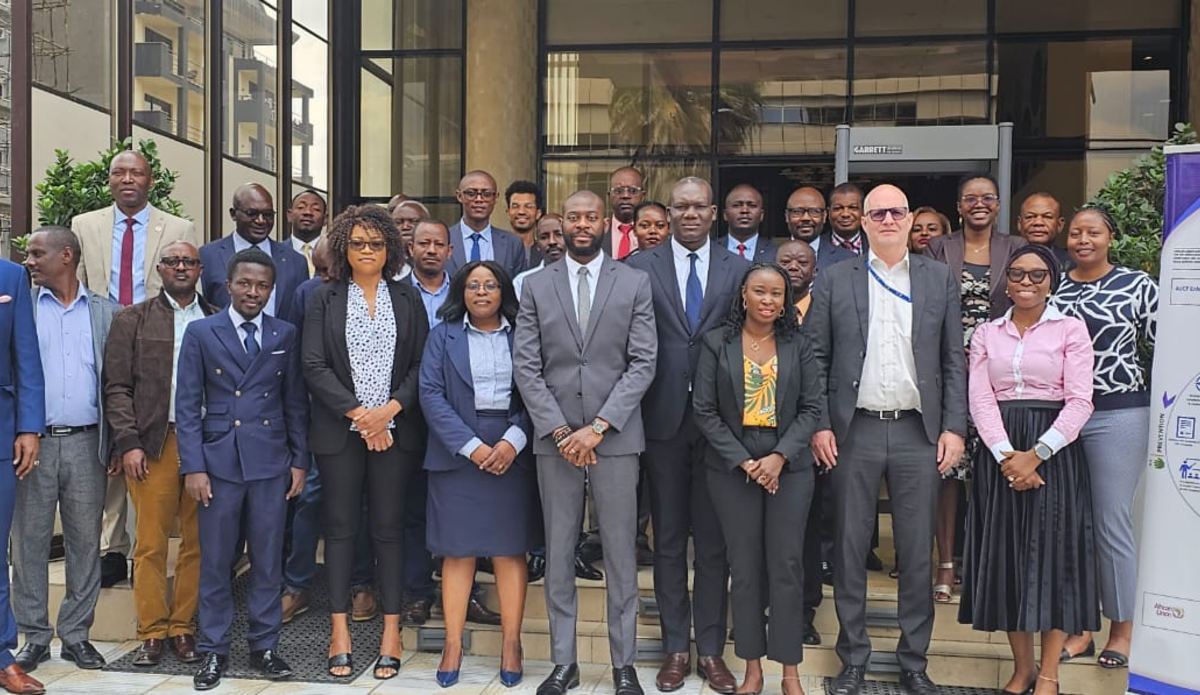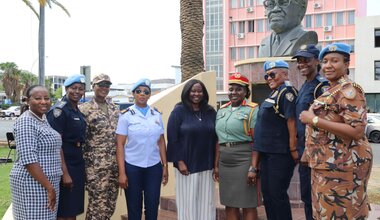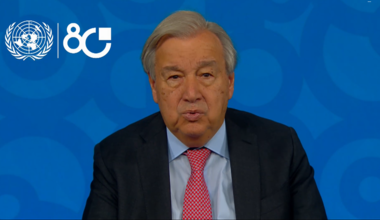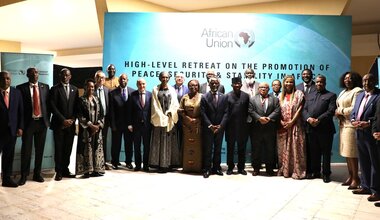Strengthening the Response Mechanisms of the AU Compliance and Accountability Framework
From 9 to 11 October 2023, UNOAU participated in the Consultative Session on the Case Management Process for AU PSOs in Addis Ababa. The meeting drew participants from ongoing AU PSOs, including ATMIS, SAMIM, EACRF and MNJTF; Regional Economic Communities – ECOWAS and SADC; Troop and Police Contributing Countries - Kenya, Uganda, Zambia and Ghana; the AUC, UNOAU and the AU Compliance and Accountability Framework (AUCF) Project staff.
The aim of the meeting was to develop a comprehensive process for managing all allegations of violations of International Human Rights Law (IHRL) and International Humanitarian Law (IHL) and other misconduct committed by AU PSO personnel - including outlining the step-by-step processes, procedures and mechanisms - with the aim of ensuring accountability and preventing re-occurrence. To ensure a case management system that considers the circumstances of the different PSOs, the AU also sought to understand what case management system aspects the different PSOs had, with the aim of building on existing good practices and addressing gaps.
In his opening remarks, the Program Manager, Peace and Security in the EU Mission to the AU, stressed the complex nature of the security operations undertaken in the African continent and the need to ensure that Protection of Civilian issues and conduct and discipline matters of PSO personnel were properly taken into account. The UN Coordinator of the AUCF Project noted that the Case Management System was the backbone of AU’s compliance and accountability framework, that it contributed to preventing/mitigating violations of IHL and IHRL through routing out past violators, and structurally with identifying trends and root causes of violations and informing strategies to address them. The Acting Head of PSOD stressed that the aspect of feedback was critical in the case management process, and that the AU would appreciate T/PCCs feedback on the actions they had taken and so that the AU could communicate to the complainant, victims, or communities.
The proposed case management guidelines, once finalized, would help in strengthening the ability of the AU, AU PSOs and other missions deployed on the continent, to respond to and remedy violations of International Human Rights Law and International Humanitarian Law, including sexual exploitation and abuse, and breaches of conduct and discipline standards, which might occur during operations.
 UN
UN






